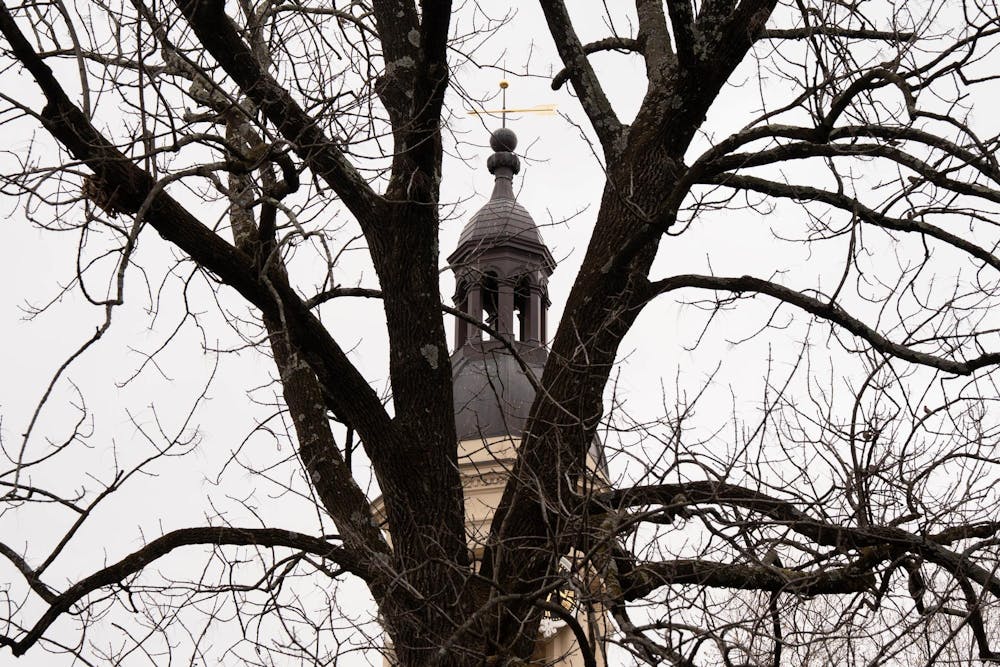On Monday, Princetonians for Free Speech (PFS) — an alumni-organized nonprofit supposedly committed to reviving viewpoint diversity at Princeton by empowering a “nonpartisan community of alumni” — published a letter in The Princeton Tory titled “A Letter to the Class of ’29 from Princetonians for Free Speech.”
PFS’s letter references an article written by Antonio Settembrino ’28 — also published in the Tory — last April, detailing a first-year conservative’s disillusionment with a campus culture he thinks is pitted against conservative thought. “Sometimes, [Princeton] is an environment that only welcomes elite progressives,” he said. “If you fall outside that group, you can be labeled an ‘idiot, uninformed, and irresponsible’ person, as some of my peers did to me.”
Why is PFS, which claims to protect students regardless of political identity, publishing a letter to all first years in a journal that only appeals to a select few on this campus? Perhaps it’s because protecting speech that lies beyond the confines of conservatism was never in its interest at all.
So let us make an appeal to the entire Class of 2029: Contrary to the trite tropes of PFS’s letter, you can care about viewpoint diversity and free expression even if you don’t read the Tory. As liberals and progressives, you can understand that free speech is an issue that affects everyone.
In fact, the people on our campus currently facing the most tangible threats to free speech are not disaffected conservatives who had tough freshman years. While the ways that Settembrino was treated by certain individuals are certainly regrettable, not once did he have to worry about potential legal repercussions for speaking his mind.
The same cannot be said for international students, who make up 14% of the undergraduate population at Princeton. Last March, Rümeysa Öztürk at Tufts and Mahmoud Khalil at Columbia were kidnapped off the streets by plainclothes Immigration and Customs Enforcement (ICE) officers for writing an op-ed or participating in protests — both actions that are protected by the First Amendment for citizens and noncitizens alike. Hundreds more students across the country have had their visas revoked for pro-Palestinian speech. At Princeton, two students had their visas revoked for reasons unknown.
Less than a month later, PFS published an article on why “The Fight for Free Expression at Princeton is Just Getting Started.” Making no reference to these nationally contentious events, the letter instead remarked on Princeton’s low rating from the Foundation for Individual Right and Expression (FIRE) — a distraction if there ever was one, not to mention the spurious methodology of the rating system.
Yes, free speech is in a precarious place on campus. But PFS’s attempts to ameliorate the concerns of the entire student population are misguided at best, insidious at worst. While PFS wrings its hands over DEI, students have stopped writing op-eds out of fear of government retaliation.

PFS also shows its hand in its homepage’s hyperlinks to “Free Speech News & Commentary,” consisting mostly of a dubiously reasoned selection of articles from various political leanings, which operate on an Overton window shifted rightward.
From a look at its more recent posts, more conservative features on the site consist of ‘anti-white racism’ arguments by Christopher Rufo from the Manhattan Institute-backed City Journal, or reactionary columns by people without intimate knowledge of our campus from minor right-leaning publications. These are largely tired arguments on shaky factual ground. Yes, they also reprint extensively from The Daily Princetonian. But PFS is overly generous to columns on free speech that avoid addressing many of the speech problems that students actually face on campus, and exaggerates the relevance of a minor strain of conservative arguments in the space of campus discourse.
PFS rightfully recognizes that things like viewpoint diversity are essential. But it does not go far enough in fighting for free speech rights for all students, nor does it make its appeal in a publication that is targeted to the entirety of campus.
If the Tory or the PFS stand for free speech, they only stand for one slice of it. So challenge your professors, interrogate yourself and your classmates, and surround yourself with voices that will constructively engage with your own. But remember that free expression doesn’t come from organizations that confuse ideology with principle, but by those who insist that every voice of the community — conservative, progressive, international, undocumented — is a voice worth protecting and caring for.

It’s in your hands, then, Class of 2029, to reject their one-sided appeals and embrace a fuller vision of free speech on this campus.
Siyeon Lee is a junior associate opinion editor from Seoul, South Korea, majoring in History. She can be reached at siyeonlee[at]princeton.edu.
Charlie Yale is a sophomore assistant opinion editor from Omaha, Neb. He can be reached at cyale[at]princeton.edu.








